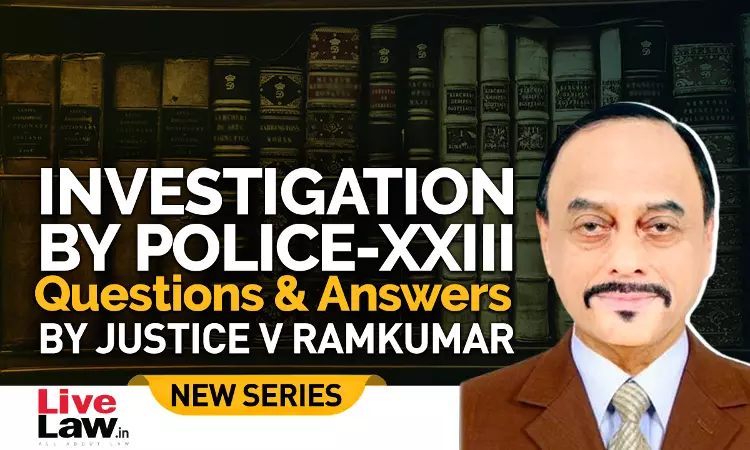Questions & Answers By Justice V. Ramkumar- Investigation By Police- PART XXIII
Justice V. Ramkumar
21 Jan 2023 2:00 PM IST

Next Story
21 Jan 2023 2:00 PM IST
In the case of “petty offences” is there any “special summons” and what are the options available to the accused ?Ans. Yes. In the case of “petty offences” as defined under Section 206 (2) Cr.P.C. and which can be summarily disposed of under Sections 260 or 261 Cr.P.C., the Magistrate can issue a “special summons” indicating the amount of fine not exceeding Rs. 1,000/- in...
